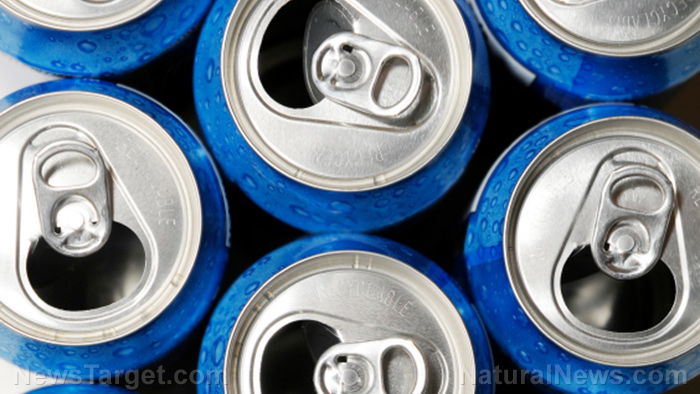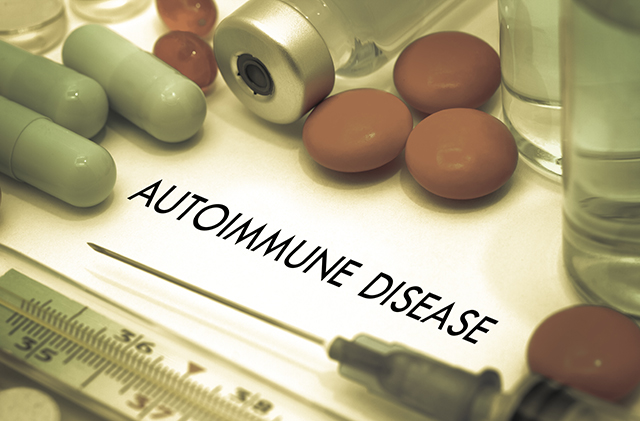The dangers of phosphoric acid, a common ingredient linked to increased risk of osteoporosis and heart disease
11/16/2020 / By Michael Alexander

Bad news, soft drink fans: Your favorite fizzy drinks are increasing your risk of developing osteoporosis and heart disease. This, according to experts, is due to the presence of phosphoric acid in these products.
One of the most commonly used mineral acids, phosphoric acid (H3PO4) is a colorless, odorless chemical produced by either treating phosphorus-containing rock with sulfuric acid or by chemically treating white phosphorus.
Because of its unique and versatile properties, the use of phosphoric acid is widespread in many industries, which means that the chemical can be found in many products, such as:
Food items and beverages
Phosphoric acid is a major ingredient in most carbonated soft drinks. Aside from acting as an antimicrobial agent and acidulant, phosphoric acid also provides some of the bubbles in carbonated drinks.
In addition, phosphoric acid is added to many different food items, such as processed meat, cheeses, jams and preserves, due to its antimicrobial and disinfectant properties.
Industrial cleaners
According to several studies, the corrosive nature of phosphoric acid makes it ideal for cleaning rust off industrial machinery and other types of heavy equipment.
As per the U.S. Department of Health and Human Services, phosphoric acid is used in a variety of cleaning products available on the market today.
Fertilizers and livestock feed
Much like how the chemical is incorporated into many food items and beverages, phosphoric acid is also used in many commercially-available and mass-produced feed for livestock and poultry, mainly due to its flavor and antibacterial properties.

Aside from animal feeds, phosphoric acid is also added to many commercial-grade fertilizers and soil amendments. According to experts, this is because of the disinfectant and bactericidal qualities exhibited by phosphoric acid.
The negative effects of too much phosphoric acid
The recommended daily amount (RDA) of phosphorus is 700 mg for adults. You can easily get this essential mineral from natural sources, such as foods that are high in protein. These include meat, beans, eggs, chicken and fish.
However, because certain foods are abundant in phosphorus, it is quite easy to go over the RDA, especially if you consume a lot of sodas and processed foods. For instance, a single serving of soda can have up to 500 mg of phosphoric acid. Consuming excessive amounts of phosphorus is dangerous and has been linked to negative effects, such as:
Increased osteoporosis risk
High levels of phosphorus can cause a decrease in calcium, which, in turn, increases a person’s risk of osteoporosis.
According to a study published in the American Journal of Clinical Nutrition, the combination of caffeine and phosphoric acid, in particular, has an adverse effect on bone mineral density, especially in older women.
Increased cardiovascular disease risk
Having excessive amounts of phosphorus can elevate your risk of heart disease. This is according to a study published in The Journal of Pediatrics, which noted that children who consume large amounts of soft drinks have a higher risk of hypocalcemia — a condition characterized by low calcium levels — than children who don’t. Because calcium plays an important role in heart muscle contraction and relaxation, hypocalcemia can cause heart problems and, in severe cases, lead to heart failure.
High intake of phosphate-rich foods has also been reported to cause high blood pressure.
Dangerous for people with kidney problems
People who are suffering from kidney disease may find it difficult to process phosphorus normally, which could cause it to build up in your bloodstream. Over time, this can lead to dangerous complications, including stroke or death.
Phosphoric acid can be found in so many foods and products that it’s almost inescapable. To avoid the negative effects of too much phosphorus, limit your consumption of processed foods, especially sodas and processed meats.
Learn more about healthy diets at Fasting.news.
Sources include:
Submit a correction >>
Tagged Under:
bone health, cardiovascular disease, disease causes, fast food, health science, heart health, osteoporosis, phosphoric acid, phosphorus, processed meat, products, sodas, soft drinks, toxic ingredients, weak bones
This article may contain statements that reflect the opinion of the author





















